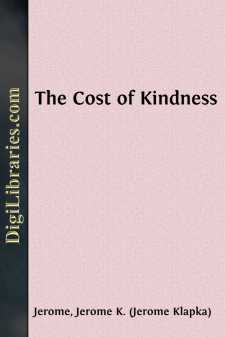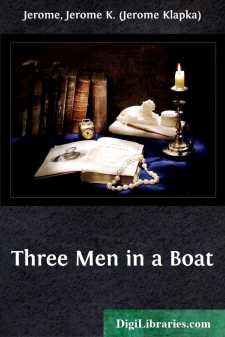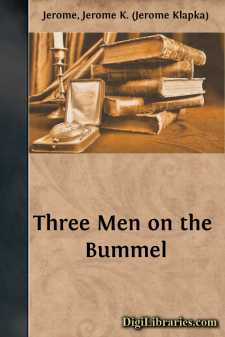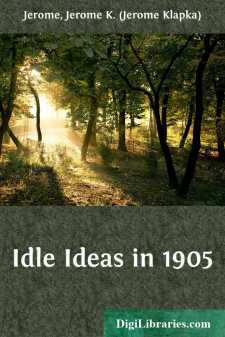Categories
- Antiques & Collectibles 13
- Architecture 36
- Art 48
- Bibles 22
- Biography & Autobiography 813
- Body, Mind & Spirit 142
- Business & Economics 28
- Children's Books 15
- Children's Fiction 12
- Computers 4
- Cooking 94
- Crafts & Hobbies 4
- Drama 346
- Education 46
- Family & Relationships 57
- Fiction 11829
- Games 19
- Gardening 17
- Health & Fitness 34
- History 1377
- House & Home 1
- Humor 147
- Juvenile Fiction 1873
- Juvenile Nonfiction 202
- Language Arts & Disciplines 88
- Law 16
- Literary Collections 686
- Literary Criticism 179
- Mathematics 13
- Medical 41
- Music 40
- Nature 179
- Non-Classifiable 1768
- Performing Arts 7
- Periodicals 1453
- Philosophy 64
- Photography 2
- Poetry 896
- Political Science 203
- Psychology 42
- Reference 154
- Religion 513
- Science 126
- Self-Help 84
- Social Science 81
- Sports & Recreation 34
- Study Aids 3
- Technology & Engineering 59
- Transportation 23
- Travel 463
- True Crime 29
John Ingerfield and Other Stories
Categories:
Description:
Excerpt
CHAPTER I.
If you take the Underground Railway to Whitechapel Road (the East station), and from there take one of the yellow tramcars that start from that point, and go down the Commercial Road, past the George, in front of which starts—or used to stand—a high flagstaff, at the base of which sits—or used to sit—an elderly female purveyor of pigs’ trotters at three-ha’pence apiece, until you come to where a railway arch crosses the road obliquely, and there get down and turn to the right up a narrow, noisy street leading to the river, and then to the right again up a still narrower street, which you may know by its having a public-house at one corner (as is in the nature of things) and a marine store-dealer’s at the other, outside which strangely stiff and unaccommodating garments of gigantic size flutter ghost-like in the wind, you will come to a dingy railed-in churchyard, surrounded on all sides by cheerless, many-peopled houses. Sad-looking little old houses they are, in spite of the tumult of life about their ever open doors. They and the ancient church in their midst seem weary of the ceaseless jangle around them. Perhaps, standing there for so many years, listening to the long silence of the dead, the fretful voices of the living sound foolish in their ears.
Peering through the railings on the side nearest the river, you will see beneath the shadow of the soot-grimed church’s soot-grimed porch—that is, if the sun happen, by rare chance, to be strong enough to cast any shadow at all in that region of grey light—a curiously high and narrow headstone that once was white and straight, not tottering and bent with age as it is now. There is upon this stone a carving in bas-relief, as you will see for yourself if you will make your way to it through the gateway on the opposite side of the square. It represents, so far as can be made out, for it is much worn by time and dirt, a figure lying on the ground with another figure bending over it, while at a little distance stands a third object. But this last is so indistinct that it might be almost anything, from an angel to a post.
And below the carving are the words (already half obliterated) that I have used for the title of this story.
Should you ever wander of a Sunday morning within sound of the cracked bell that calls a few habit-bound, old-fashioned folk to worship within those damp-stained walls, and drop into talk with the old men who on such days sometimes sit, each in his brass-buttoned long brown coat, upon the low stone coping underneath those broken railings, you might hear this tale from them, as I did, more years ago than I care to recollect.
But lest you do not choose to go to all this trouble, or lest the old men who could tell it you have grown tired of all talk, and are not to be roused ever again into the telling of tales, and you yet wish for the story, I will here set it down for you.
But I cannot recount it to you as they told it to me, for to me it was only a tale that I heard and remembered, thinking to tell it again for profit, while to them it was a thing that had been, and the threads of it were interwoven with the woof of their own life. As they talked, faces that I did not see passed by among the crowd and turned and looked at them, and voices that I did not hear spoke to them below the clamour of the street, so that through their thin piping voices there quivered the deep music of life and death, and my tale must be to theirs but as a gossip’s chatter to the story of him whose breast has felt the press of battle....












